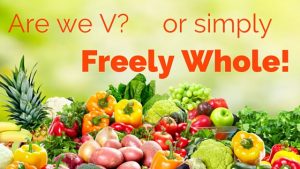 You’ll rarely hear me use the V words in relation to a Freely Whole – Good for You-Naturally! lifestyle of eating. If you’ve read what I teach, you’ve seen that this way of eating could be classified as either of the V words but I don’t generally use them, nor advertise freely whole/ Good for You-Naturally! as either. Why?
You’ll rarely hear me use the V words in relation to a Freely Whole – Good for You-Naturally! lifestyle of eating. If you’ve read what I teach, you’ve seen that this way of eating could be classified as either of the V words but I don’t generally use them, nor advertise freely whole/ Good for You-Naturally! as either. Why?
Vegan and Vegetarian can be useful terms, but they can also be quite confusing. They tend to tell more about what you don’t eat than what you do, and can be envisioned as many misleading stereotypes.
I’d already composed a rough draft of this post when this truth hit even harder when someone shared a completely twisted “research study” with me, showing the opposite of all the other studies in this area–a minimum of many hundreds of them. They’d heard this latest finding on the radio. I took the time to look up and read the entire report, that did technically have those findings, but was not a well put together study. The researchers even noted that they were afraid people would read too much into the results and draw conclusions that would not line up with hundreds of other more specific studies. The results were about “vegetarians,” with no defining of what those vegetarians did eat. Which is exactly why I don’t use the terms much.
You’d think with the “veg/veget” in vegan and vegetarian that you should be able to guess that these are people that eat vegetables. Not so! Perhaps at one time, once upon a long time ago. But today you don’t have to grow a garden or shop the produce aisle to be either.
A vegan is someone who doesn’t eat any animal products. But that doesn’t tell me what they do eat. They may live on Oreos and Pepsi, sugar and potato chips, margarine and meat substitutes. They may be an animal rights activist that “cares” more about unknown animals than their own health. It shows. They have the same diseases/lack of health (if not more) than those eating the S.A.D. (Standard American Diet). Theirs is just V.S.A.D.–Very SAD. I’ve known vegans like that. Their end was very sad indeed.
Vegetarian is even more crazy confusing. Vegetarians don’t eat animal flesh–meat, but they might eat/drink dairy and/or eggs. This tells me even less about what they do eat. They could be eating all the same things as the Very SAD people above, with cheese, ice cream, yogurt, whey isolate protein shakes, butter, and omelets thrown in. Or even just these things! Again, it tells me nothing about what they do eat, nor their commitment to health seeking.
Are those types, listed above, better “Vegans” or “Vegetarians” than someone who eats primarily fresh vegetables, fruits, and whole grains but has a little honey now and then, or a glass of raw organic milk on occasion? That judgement will likely depend on which side of the fence you are sitting, and if you believe eating should primarily be health promoting, leading to vibrant life.
Rather than being defined by what is not eaten, a lifestyle of eating (at least for health) should be defined based on what is eaten. Because your health is based on what you do eat, far more than just what you don’t. And what we eat should be based on what provides us health, foods high in the micro-nutrients our bodies need to function their best.
So what do we call ourselves that is descriptive of what we do eat? What do we call it when we eat for health?
I call it freely whole, foods that are Good for You-Naturally! that we can freely eat for optimal health and weight, that provide the most micro-nutrients per calorie. Real, whole, living, organic, fresh fruits, vegetables, nuts and seeds. Or, as others may say, whole food plant based.
Whole Food Plant Based, or WFPB. I like that term. It tells what we do eat. Plant foods in their whole form. It allows for variation in teaching, preferences and individual body needs, while still being health focused.
Although I really like the idea of WFPB being descriptive of the foods, not us, I also like the term Nutritarian, coined by Dr. Joel Fuhrman. It does tell something about me and what I do; that I eat for nutrition, high nutrient content foods.
So what’s the point of this post? Our lifestyle of eating is important to us. But is it important that we have an easy way to describe it? Does it matter what we’re called or call ourselves?
Having an easy way to describe our lifestyle of eating can be very helpful. Whole Food Plant Based gives a clearer picture than the typical V words.
To differentiate my teaching, I’ve called it Good for You-Naturally!™ since the early 1990s. I’m pleased to announce a coming change to simply, Freely Whole™. In reference to food: Freely, because we are told in Genesis 1:29 that we can freely eat of the fruits, vegetables, nuts and seeds God gave us to be our nourishment; Whole, as it is whole, God-given plants that we eat, not man-man adulterations and concoctions.
Beyond being descriptive of the food we eat, Freely Whole encompasses much, and is in line with the foundation of this ministry on so many levels: “and the very God of peace sanctify you wholly; and I pray God your whole spirit and soul and body be preserved blameless unto the coming of our Lord Jesus Christ.” ~ 1 Thessalonians 5:23.
May you be simply Freely Whole. And your eating be Whole Food Plant Based.
How do you describe your lifestyle of eating for optimal health?
[subscribe2]






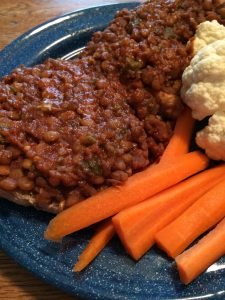


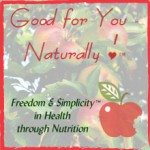
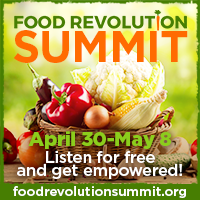



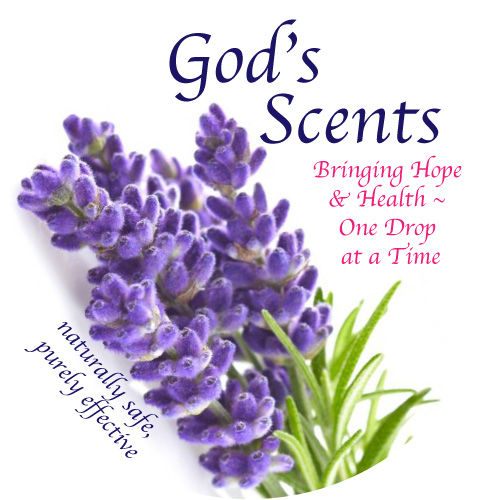 doTerra Essential Oils
doTerra Essential Oils